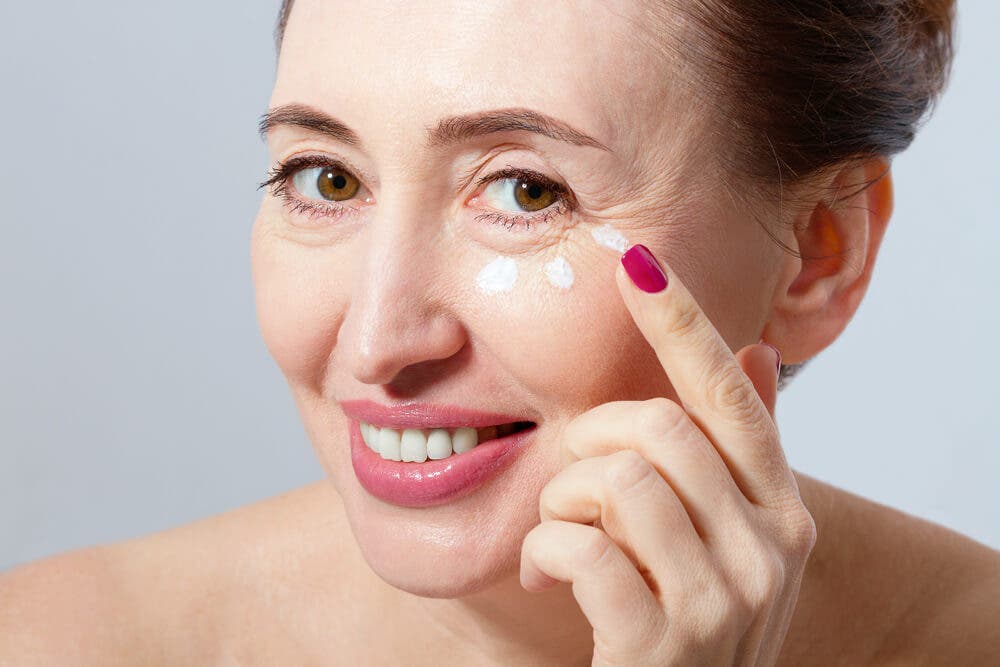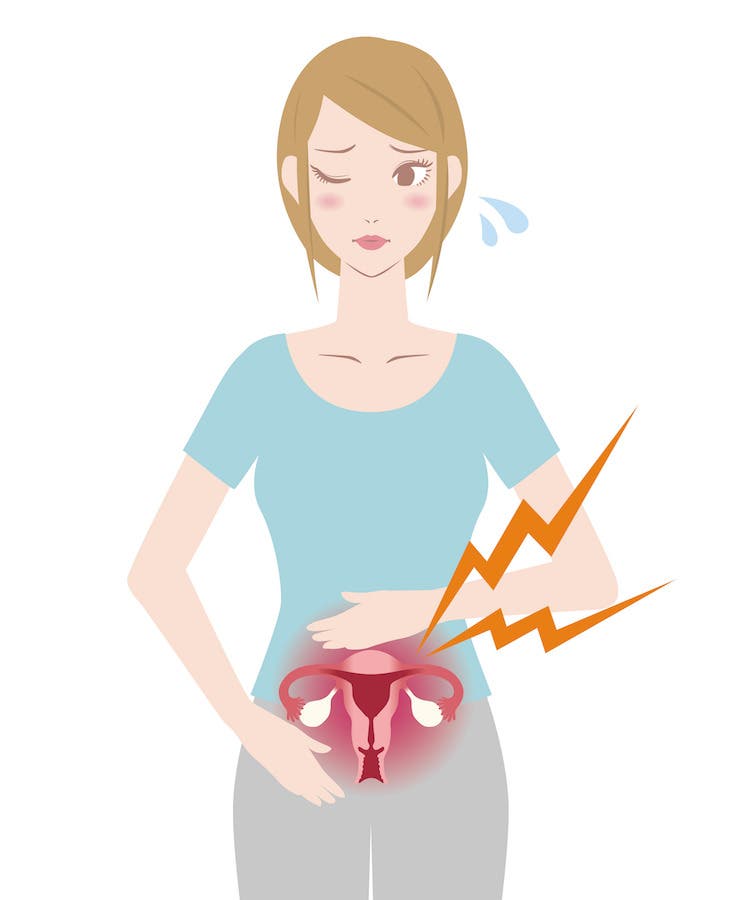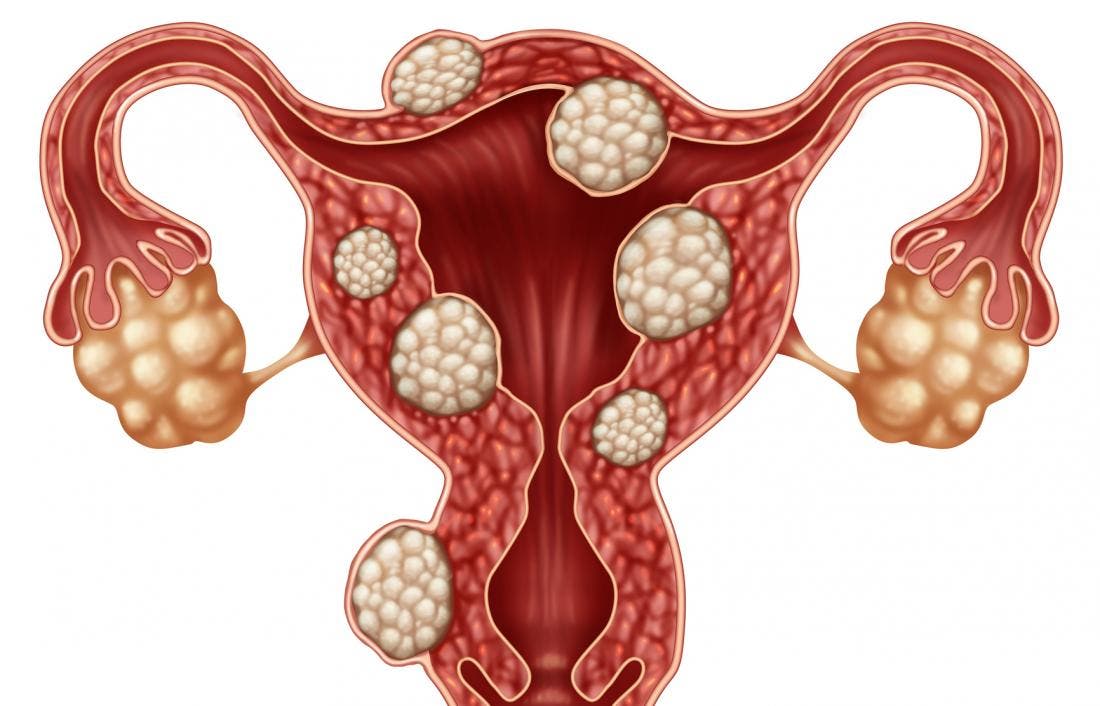Uterine fibroids are common formations and about 80 percent of women have fibroids by the age of 50. Uterine fibroids can cause mild symptoms as well as severe symptoms. It is not known what causes fibroids, but it is known that these benign formations change over time.
Experts do not know why fibroids form, but it is known that they are associated with estrogen production. As the body changes, the likelihood of fibroids forming in the uterus changes. With menopause, there is usually a decrease in the symptoms caused by fibroids.
What Happens in Menopause?

During menopause, the body goes through a natural process of change. Missing periods for 12 months in a row signals the end of a woman’s reproductive years.
The period leading up to menopause is called perimenopause. During perimenopause, most women begin to experience some changes and symptoms.
Some of the changes that occur in the body during menopause are as follows:
- The ovaries stop producing estrogen and progesterone.
- The ovaries stop releasing eggs into the fallopian tubes.
- The menstrual cycle ends completely.
Do Fibroids Shrink in Menopause?

Female hormones have an effect on the formation of fibroids. Hormones such as estrogen and progesterone increase the risk of fibroids forming. These hormones are most secreted during the childbearing years.
These hormones decrease as the body enters menopause. With menopause, the function of the ovaries decreases and they stop producing estrogen.
As menopause approaches, uterine fibroids may shrink. In many women, the symptoms associated with fibroids even disappear. The risk of new fibroids also decreases with menopause.
When menstrual cycles end, fibroids go to sleep. So the ovaries hibernate everything.
Fibroids, although rare, can also occur after menopause. Although the exact cause of this is unknown, fibroids that form during menopause usually cause milder symptoms.
How is uterine fibroids treated?

Treatment for uterine fibroids will vary depending on your age and symptoms. Various hormonal treatments and surgical interventions are possible in the pre-menopausal period. However, every woman’s body and every fibroid is different from each other. Therefore, there is no single treatment option for everyone.
Fibroids are all different sizes and located in different places. For this reason, the symptoms caused by fibroids may appear differently in everyone.
However, by a certain age, fibroids and/or symptoms usually disappear. Menopause is effective in reducing the symptoms caused by uterine fibroids. Therefore, you will probably not need treatment at this time, unless your doctor advises otherwise.
It is important to make sure that the problems you are experiencing are caused by uterine fibroids. Some women experience heavy bleeding after menopause. This is usually not a sign that fibroids have formed or that the fibroids are getting worse.
Symptoms experienced during menopause can be a sign of other problems. Therefore, if you experience unusual symptoms, you should not assume that they are caused by fibroids and ignore them.
People who have had fibroids in the past may attribute the heavy bleeding they experience later in life to fibroids. However, fibroids rarely cause symptoms after menopause. So if you have postmenopausal bleeding, your body may be trying to tell you something else. In this case, you should visit your doctor as soon as possible.
Your doctor may order various tests and scans to identify the factors causing your symptoms. He or she may also try to detect the problem with a pelvic examination.
Fibroids rarely cause bleeding in the post-uterine period. Fibroids that occur during menopause usually do not cause symptoms. In this case, fibroids will not need to be treated. If menopausal fibroids do not cause you any discomfort or symptoms, there is nothing to worry about.
Read also:
- How do I check my gastrointestinal function?Stomach pain, constipation or diarrhea, bloating, belching, heartburn? These are all symptoms of problems in the gastrointestinal tract. It starts with the mouth and esophagus and ends with the intestines and rectum.
- What are the benefits of hazelnut oil for the skin?Hazelnut oil is rich in vitamins and essential fatty acids that nourish the skin. Here are a few reasons why you should add this oil to your skin care routine.
- Immune-boosting aromatic oilsThere are many products and treatments that can help your body to build a natural resistance to the harsh winter months, and aromatherapy is one of them. There are many studies supporting the healing power of aromatherapy and it is good for both mental and physical health. Aromatic essential oils also have many health benefits… Read more: Immune-boosting aromatic oils
- Marula Oil Benefits, Uses, and PrecautionsMarula Oil is an exotic oil that comes from the African Marula tree. It’s a good ingredient for skin, hair, and nails. Learn more about the benefits and precautions of Marula Oil with our guide.
- Goal setting for students, children and young peopleRemember when you learned how to set goals? If you have trouble answering this question, you are not alone! Most of us don’t spend much time thinking about how we set our goals. In fact, many of us don’t even think of goal setting as a skill; rather, it’s something we do without much thought.… Read more: Goal setting for students, children and young people
The articles on this site are for information purposes only. The site administrators are not responsible for attempting to apply any recipe, advice or diet, nor do they guarantee that the information provided will help or harm you personally. Be cautious and always consult a doctor or nutritionist!
*All products recommended are selected by our editorial team. Some of our articles include affiliate links. If you buy something through one of these links, you help us earn a small commission from the seller and thus support the writing of useful and quality articles.










